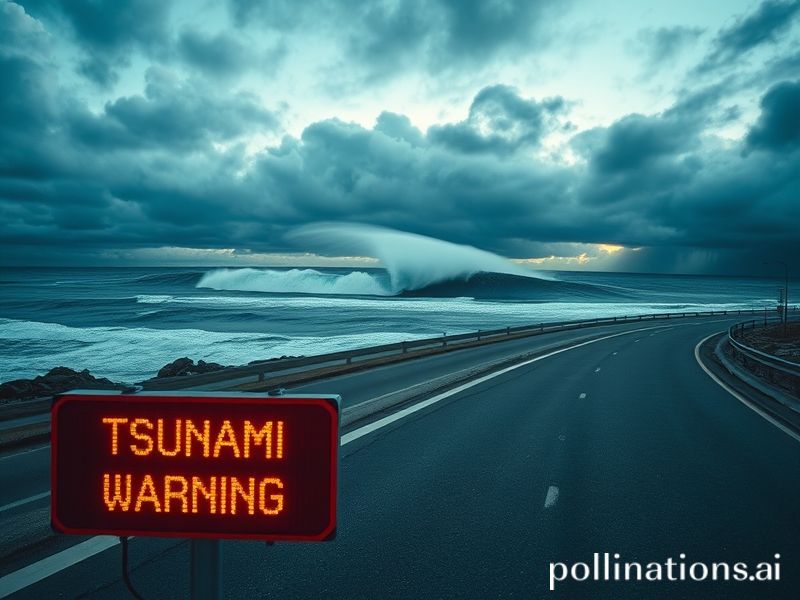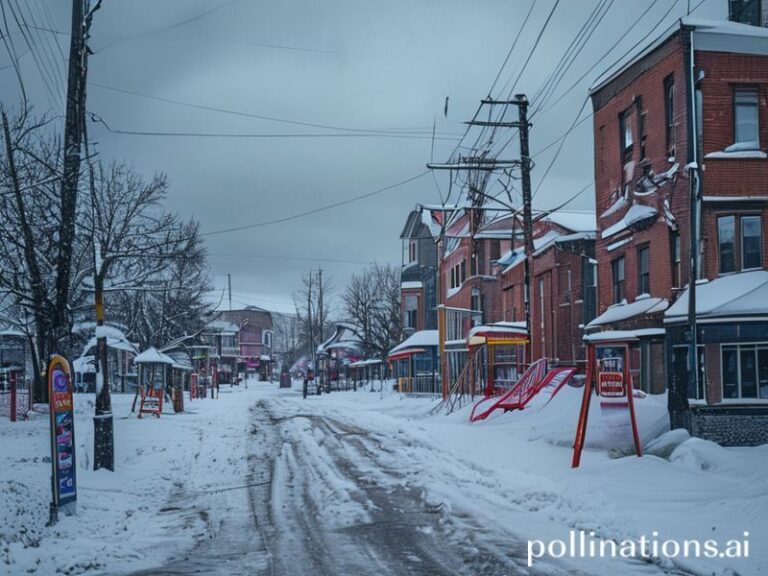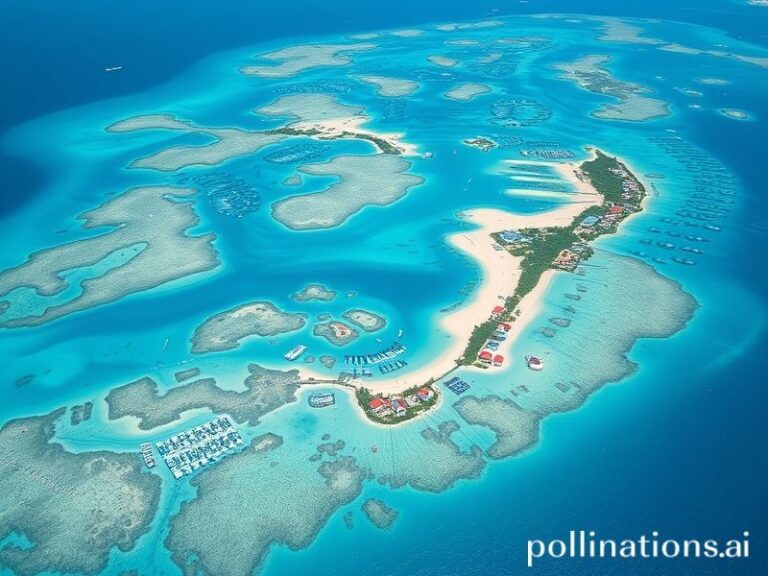Tsunami Warning: The Planet’s Group Chat on Incoming Doom—and Our Shared Talent for Ignoring It
**Tsunami Warning: Humanity’s Biannual Reminder That the Ocean Is Still Boss**
By the time the Pacific Tsunami Warning Center hits “send” on its all-caps love letter to coastlines, half the planet is already memeing wave-height graphics and the other half is Googling “how fast do tsunamis run, asking for a friend.” From Tokyo’s stock-exchange floor to a Lagos cyber-café, the same notification pings: *sea may arrive earlier and angrier than usual*. It’s one of the last non-commercial messages capable of uniting humanity in a single, adrenalized gulp—proof that fear, unlike Netflix, still travels at the speed of light.
The choreography is now as ritualized as a Japanese tea ceremony, only with more swearing. First, an undersea fault throws a tectonic tantrum—magnitude 7-point-something, the geological equivalent of a bar fight. Within minutes, a web of buoys, seismographs, and undersea pressure sensors perform their digital seppuku, sacrificing themselves to confirm what the planet just felt. Satellite phones wake up bored bureaucrats in Hawaii, who then spam every emergency inbox from Chile to Kamchatka. Sirens wail in 17 languages, none of which adequately translate “run, you arrogant bipeds.”
Global implications? Start with economics: every tsunami alert costs the shipping industry roughly the GDP of Iceland. Captains spin wheels toward deeper water, turning the Pacific into the world’s largest parking lot. Insurers rehearse the ancient art of pretending they never promised coverage for “acts of Poseidon.” Meanwhile, Bitcoin dips—because of course it does—while canned-soup futures soar; nothing says “end times” like cream of mushroom.
Diplomatically, the warnings are a rare example of multilateralism that actually works. Even nations that can’t agree on whose fishing boat rammed whom last week will share real-time wave data. Russia texts Alaska; China phones the Philippines. It’s like watching divorced parents temporarily behave at a child’s graduation—comforting, suspicious, and certain to collapse once the adrenaline fades.
Yet the real dark comedy is onshore. In Indonesia, traffic jams form instantly, because everyone who owns both a motorcycle and a death wish drives *toward* the beach for selfies. California influencers livestream “evacuation chic,” modeling $600 flotation vests that match their rescue dogs’ anxiety jackets. In Sydney, bros argue over whether a six-foot surge counts as overhead conditions. Spoiler: it does, but the wipe-out is permanent.
Technology was supposed to save us from ourselves. Early-warning apps now overlay augmented-reality escape routes on your phone—helpful until the cell tower sinks. Japan’s bullet trains auto-brake to avoid derailment, stranding commuters who promptly invent the world’s most polite riot. And then there’s the experimental GPS-based system that calculates personal splash risk; beta testers in Wellington received push notifications reading “You will probably drown. Tap to upgrade to Premium.” Silicon Valley calls it “disrupting mortality.” The rest of us call it late-stage capitalism with floaties.
Still, the broader significance is hard to mock. A tsunami is the planet’s reminder that every border is imaginary when the ocean reclaims the sandbox. Climate change is accelerating sea-level rise, which means future waves start one floor higher and arrive pissed off by our decades of carbon foreplay. The same coastlines now being evacuated are also slated for luxury condos—because nothing says “investment opportunity” like waterfront property that’s temporarily inland.
By dawn, the wave—if it materializes—has spent itself against the continents, leaving only debris, viral videos, and the next round of reconstruction contracts. Politicians will pose in rubber boots, promising smarter cities on higher ground, then zone the rebuilt neighborhoods even closer to the water. Insurance premiums will double, then triple, until only the ultra-rich can afford to drown in style. And somewhere beneath the Pacific, a tectonic plate clears its throat, rehearsing the next polite cough that will send us all scurrying again.
In the end, tsunami warnings are the globe’s most democratic event: a collective time-out in which prince and pauper alike get the same 15-minute head start. We may never agree on taxes, tariffs, or TikTok, but give humanity a shared wall of water and watch us achieve near-instant consensus: run first, argue later, post memes forever. The ocean, indifferent to our passports, keeps its own customer-service score. Spoiler: we’re three stars, declining.







